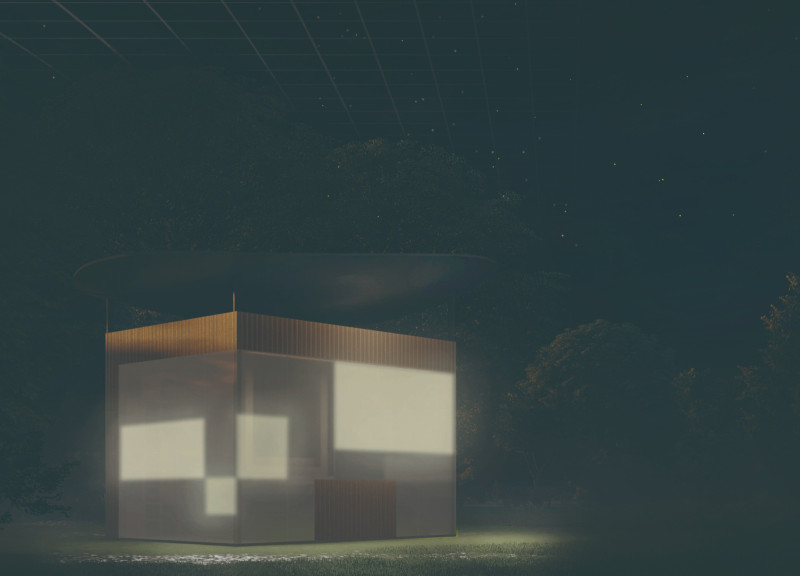5 key facts about this project
The Metaverse House offers a modern approach to the challenges of urban living. Located in an evolving city environment, this housing design is identified as a 'micro-metaverse house.' It aims to overcome traditional limitations of space and enhance the living experience for its residents. By combining advanced technology with sustainable practices, the design fosters connectivity and adaptability in everyday life.
Technological Integration
The design facilitates a non-face-to-face social structure, allowing residents to connect with others across distances. Digital interfaces are incorporated to make communication easy and efficient. This approach broadens the purpose of a home. It becomes not just a place to live but also a space where people can interact globally while maintaining daily routines.
Sustainability Features
Sustainability is a key component of the house. It is equipped with systems that produce essential resources on their own. Glass elements within the structure serve as solar cells, specifically using FTO Glass to capture energy. Additionally, the roof is designed like a leaf to collect rainwater, providing a steady water source. These features align with contemporary environmental standards and promote conscious resource use.
Spatial Configuration
The layout focuses on minimalism while maximizing functionality. Each area is organized to meet specific needs, such as living spaces, kitchens, and bathrooms. This zoning not only makes the most of the available space but also supports flexible living. The smaller footprint reflects an understanding of urban land use and allows for an increased connection with nature.
Internal Elements
Inside, the Metaverse House presents a balance between comfort and technology. Spaces are thoughtfully arranged to support daily activities, whether for relaxation or work. Unique design details, including water and energy systems, emphasize a commitment to sustainability. Collectively, these elements create an environment that aligns with modern values, where ecological awareness and innovation coexist.




















































